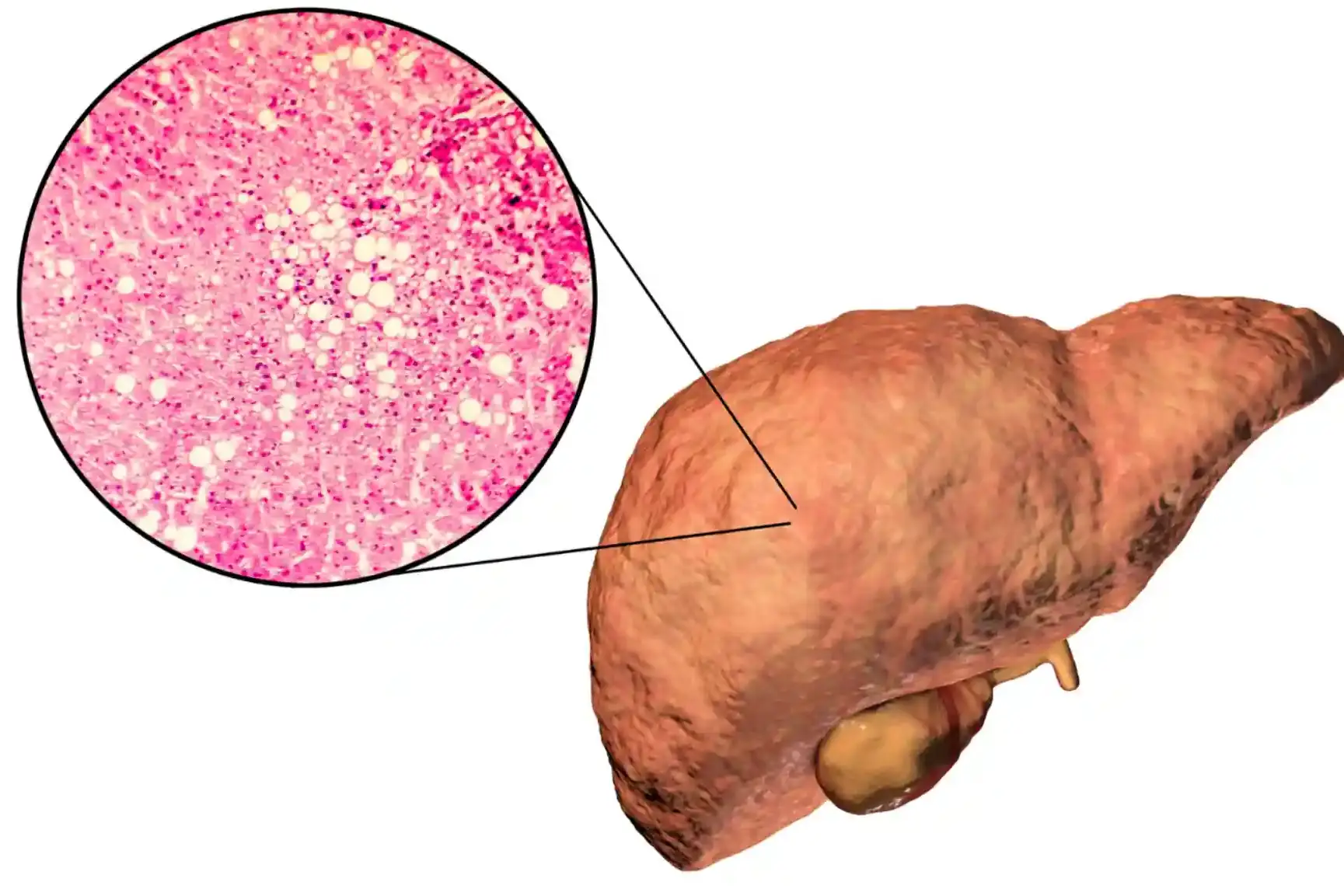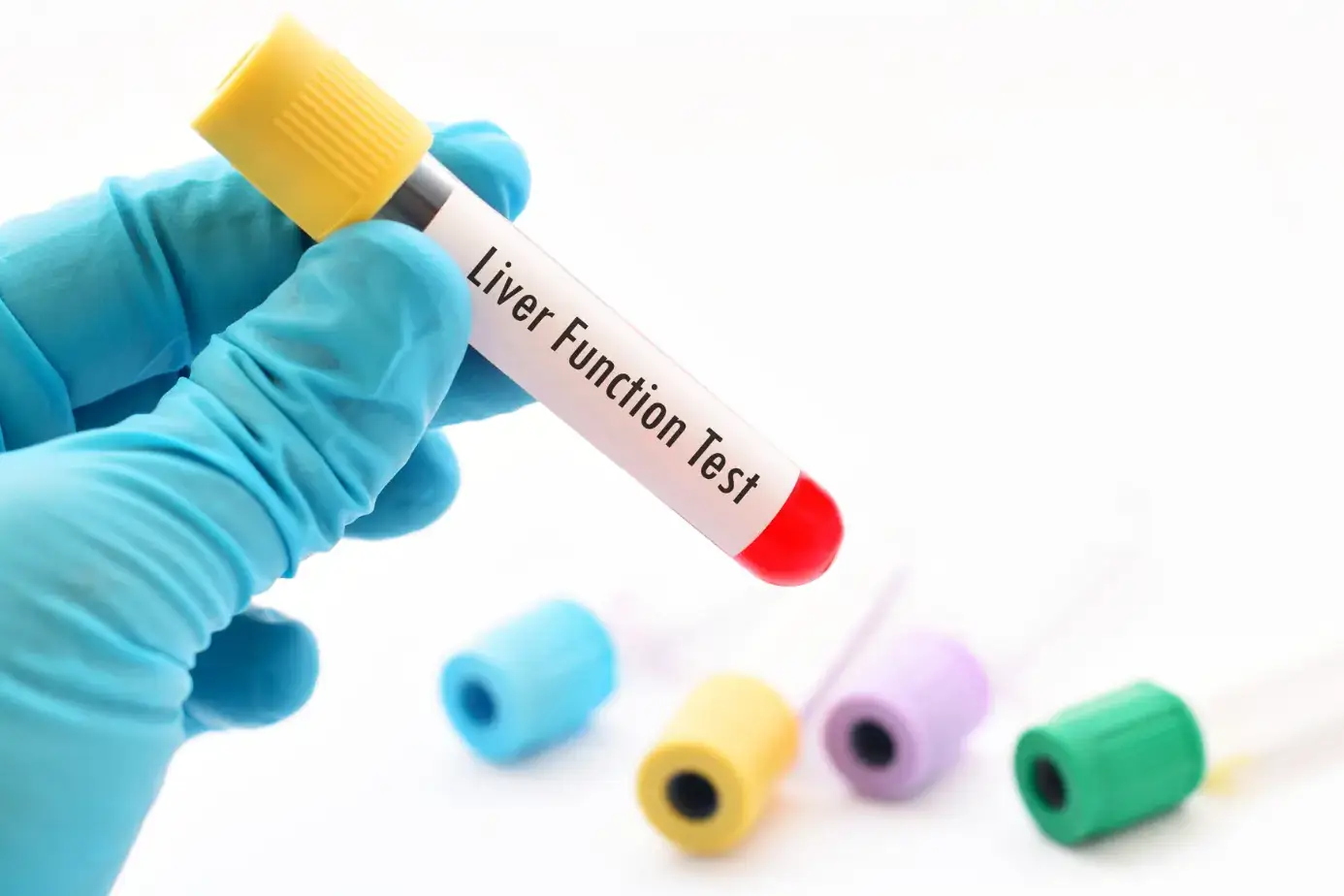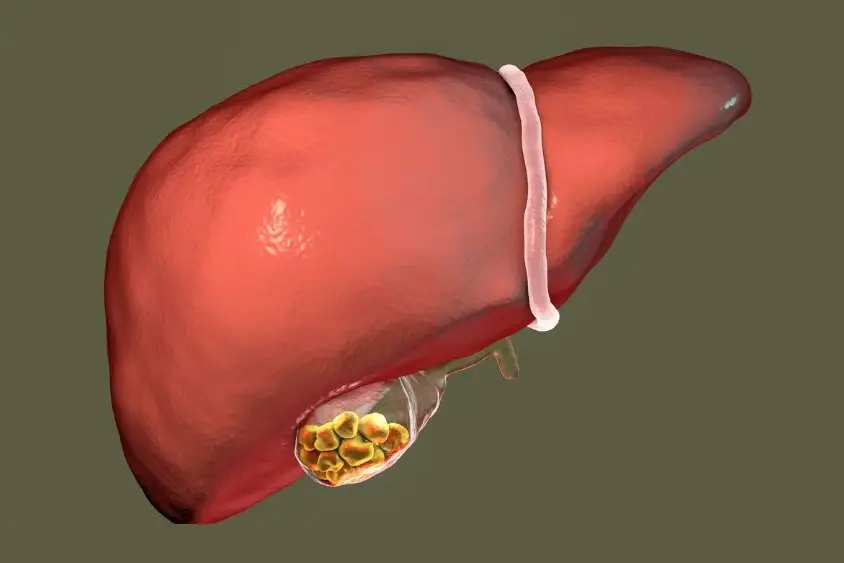The liver is the largest internal organ, which regulates metabolism, supports digestion, manages nutrients, and removes harmful substances from the blood. Without liver function, survival is not possible.
Table of Contents
ToggleUnlike organs that perform a single task, the liver is related to coordination. It connects digestion, circulation, immunity, and energy balance. Every meal you eat and every medication you take passes through it.
Key Takeaways
- The liver is the largest internal organ in the human body.
- It plays a critical role in metabolism, digestion, detoxification, and nutrient storage.
- Healthy liver function is essential for survival and metabolic balance.
What Is a Liver?
A liver is a solid internal organ that processes nutrients absorbed from food, produces bile for digestion, and removes waste products from the blood.
The liver decides what your body keeps, stores, uses, or removes. The liver is both an organ and a gland.
- As an organ, it performs life-supporting tasks such as metabolism and detoxification.
- As a gland, it produces bile, a digestive fluid released into the small intestine.
Doctors often call the liver a metabolic organ. Metabolism means how your body turns food into energy and building material. Detoxification is only one part of this process.
The liver controls blood sugar, fat handling, protein balance, and vitamin storage every hour of the day.
Where Is the Liver Located in the Body?
If you’re wondering, “Where is the liver located in the body?”, the liver is located on the upper right side of your abdomen. It sits under the rib cage and above the stomach, right kidney, and intestines.
Its position allows direct access to blood coming from the digestive tract, which is essential for nutrient processing.
What Does the Liver Look Like?
A normal adult liver has a reddish-brown color and a smooth surface. It feels firm but flexible and has a broad, wedge-like shape.
Disease changes appearance in predictable ways.
- In fatty liver disease, the liver looks like it shifts toward a pale, enlarged organ due to fat accumulation inside liver cells.
- In cirrhosis, long-term injury causes scarring, making the surface uneven and hard.
These physical changes reflect loss of function. Doctors often recognize liver disease during imaging or surgery before symptoms appear.
What Are the Main Liver Functions in the Body?
The liver’s functions in the body extend across multiple systems. This organ does not work in isolation. It coordinates chemical balance throughout your bloodstream.
Key liver functions in the body include metabolic regulation, digestive support, detoxification, nutrient storage, and immune filtration.
- Metabolically, the liver controls how carbohydrates, fats, and proteins are processed.
- Digestively, it produces bile to allow fat absorption.
- From a detox perspective, it modifies drugs and toxins so they can be safely removed.
- It also stores vitamins and minerals for future use and filters bacteria from blood coming from the gut.
These liver functions in the body occur continuously. Even brief failure disrupts blood chemistry and brain function.
Role of Liver in Digestion
The role of liver in digestion begins with bile production. Bile is a fluid made by liver cells and released into the small intestine through bile ducts.
Bile does not digest food directly. Instead, it breaks dietary fat into smaller droplets. This process allows digestive enzymes to work effectively.
The role of liver in digestion also supports the absorption of fat-soluble vitamins. These include vitamins A, D, E, and K, which are essential for vision, bone health, blood clotting, and immune support.
Without adequate bile flow, digestion appears normal at first, but nutrient deficiencies slowly develop. This delayed effect often hides early liver disease.
Liver Function in Metabolism
The liver function in metabolism keeps your internal chemistry stable. It acts as a buffer between food intake and body demand.
After you eat, excess glucose is stored in the liver as glycogen. When blood sugar drops, glycogen is converted back into glucose and released. This prevents dangerous swings in blood sugar.
The liver function in metabolism also controls fat handling. The liver processes cholesterol, produces lipoproteins, and decides whether fats are stored or burned.
Protein metabolism depends on liver activity as well. The liver produces albumin, which maintains fluid balance in blood vessels, and clotting factors that prevent uncontrolled bleeding.
Can You Live Without a Liver?
No, you cannot live without a functioning liver. When doctors discuss whether you can live without a liver , they mean permanent absence, not short surgical intervals. The liver performs tasks that no other organ can fully replace, including metabolic control and toxin clearance.
If liver failure occurs, toxins such as ammonia build up in the blood and reach the brain, leading to confusion, coma, and death. Blood sugar control collapses, and clotting factors fall, increasing internal bleeding risk.
A liver transplant is the only definitive treatment once liver failure becomes irreversible. During transplant surgery, you can live without a liver only for a brief, controlled period while circulation is supported artificially.
Liver regeneration is often confusing. Regeneration means that remaining healthy tissue can grow larger. It does not mean the body can function without liver tissue.
Why the Liver Is Essential for Survival
To understand what a liver is, you must understand systemic failure. The liver maintains internal balance by regulating blood composition minute by minute. When this control weakens, damage spreads rapidly.
Without liver function, waste products are not neutralized, hormones remain unbalanced, and nutrients cannot be processed correctly. The immune system also weakens because bacteria from the gut are no longer filtered effectively.
No other organ can compensate for these losses. Kidneys filter blood but do not manage metabolism. The pancreas aids digestion but does not store nutrients.
Common Misunderstandings About the Liver
- One common myth is that the liver only processes alcohol. Alcohol metabolism represents a small fraction of total liver workload. Daily metabolic regulation consumes far more energy and capacity.
- Another misconception is that normal blood tests mean a healthy liver. Early liver disease often shows normal enzyme levels because damage can exist without active cell death.
- Detox products claiming to clean the liver are biologically inaccurate. The liver removes waste using built-in enzyme systems. No drink, supplement, or cleanse enhances this process.
Diet and Detox
FAQs
Is the liver essential for life?
Yes. A liver is essential for metabolism, toxin removal, and blood stability. Complete loss of liver function causes rapid toxin buildup, metabolic collapse, and death within days without transplant support.
Is the liver part of digestion?
Yes. The role of liver in digestion involves bile production, which breaks down dietary fat into absorbable units. Without bile, fat digestion fails, and deficiencies of vitamins A, D, E, and K develop over time.
Does the liver control metabolism?
Yes. The liver’s function in metabolism regulates blood sugar, cholesterol handling, protein synthesis, and energy storage. This control prevents dangerous swings in glucose, fats, and blood chemistry throughout the day.
Can the liver repair itself?
Yes, but only under specific conditions. A liver is capable of regeneration when damage is mild and temporary. Chronic injury from alcohol, fatty liver disease, or hepatitis limits this ability and leads to scarring.
Does liver disease always cause symptoms?
No. Early liver disease often causes no pain or visible signs. This silent phase occurs because the liver has no pain nerves and compensates until its function drops significantly.
Is liver failure reversible?
Sometimes. Reversibility depends on cause, duration, and remaining healthy tissue. Acute injury may recover with treatment, while advanced cirrhosis usually requires a transplant for survival.
Is the liver the largest internal organ?
Yes. The liver is the largest internal organ, weighing more than the heart or kidneys. Its size reflects the volume of blood and metabolic work it handles continuously.
Can a person survive on part of a liver?
Yes. After surgery or transplant, the remaining liver tissue can enlarge to meet demand if it is healthy. This regrowth restores function but does not occur in heavily scarred or diseased tissue.
About The Author

Medically reviewed by Dr. Nivedita Pandey, MD, DM (Gastroenterology)
Senior Gastroenterologist & Hepatologist
Dr. Nivedita Pandey is a U.S.-trained gastroenterologist and hepatologist with extensive experience in diagnosing and treating liver diseases and gastrointestinal disorders. She specializes in liver enzyme abnormalities, fatty liver disease, hepatitis, cirrhosis, and digestive health.
All content is reviewed for medical accuracy and aligned with current clinical guidelines.
About Author | Instagram | Linkedin





